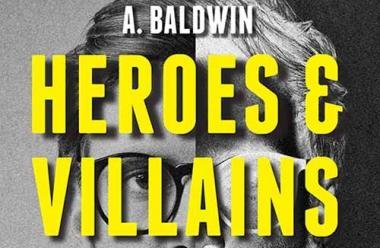“The curious mind embraces science. The gifted and sensitive, the arts. The practical, business. The leftover becomes an economist” Nassim Nicholas Taleb
When I start reading this book, I was a bit unsure about it. The reason is that it is written in a "fragmentalistic" style, a collection of substantiated facts and nuggets of truth. Sort of "snacking knowledge" style. For example, why reading the entire "Das Kapital" by Karl Marx (done it during my university days and survived, just...) when the core message can be summarized in 2 pages like in this book? Therefore, the first impression was of a chaotic collection of 50 short stories, spanning along virtually the last 3,000 years of mankind history, with some curious facts but no common theme.
In a few words, a good one for 1) relaxing and 2) with good stories and "inspirational" quotes to use for presentations/whitepapers/speeches etc.
Nevertheless, digging a bit deeper a core message and a few "universal truths" on economics can be found.
The core message is that progress in economics - and, as a direct result, in our society - has always been driven by "outsiders", that is people with a complete different mindset than the mainstream, able to introduce new ways of thinking and new practices. Starting from the Knight Templars - the inventors of the cheques ("Letters of Credit") - to David Ricardo, who formulated the economic theory of comparative advantage - the pillar of free trade - to oppose the protectionist Corn Laws n 1815.
Regarding few "Universal Truths"...
- Economics is not about abstract theories, but "Blood, Sweat and Tears". The first known economist - Thales of Miletus - virtually invented the concept of "forecasting" while trying to make money (successfully...) by "booking" olive presses in winter at a discounted price and renting them at very high price during the olive pressing season
- "Human Behavior" - understanding it deeply and thinking about the connection with economic progress - has been the starting point in most economic theories, including the theory of "Sovereignty of the Consumer" by Ludwig von Mises
- "Taking Risks" has always been a a key ingredient for generating economic innovation. Amadeo Giannini, the founder of Bank of America, decided to completely change the idea of what a "bank" is - from an institution serving the rich and powerful, to a service for the middle and the working classes - virtually creating the modern banking
- "Ethics" has always been a key element in the business, with pretty negative examples - from the Mississippi Company of John Law to the "Ponzi Scheme" - but also the idea that "transparency" in business is as a key drivers of economic progress, from Karl Mark to Friedrich Hayek
In summary, a very interesting book, fun to read and with a few very interesting stories...and still a very good source of inspirational quotes! Warmly recommend.
Newsletter
Enjoy this? Get more.
Our monthly newsletter, The Edit, curates the very best of our latest content including articles, podcasts, video.
Become a member
Not a member yet?
Now it's time for you and your team to get involved. Get access to world-class events, exclusive publications, professional development, partner discounts and the chance to grow your network.

